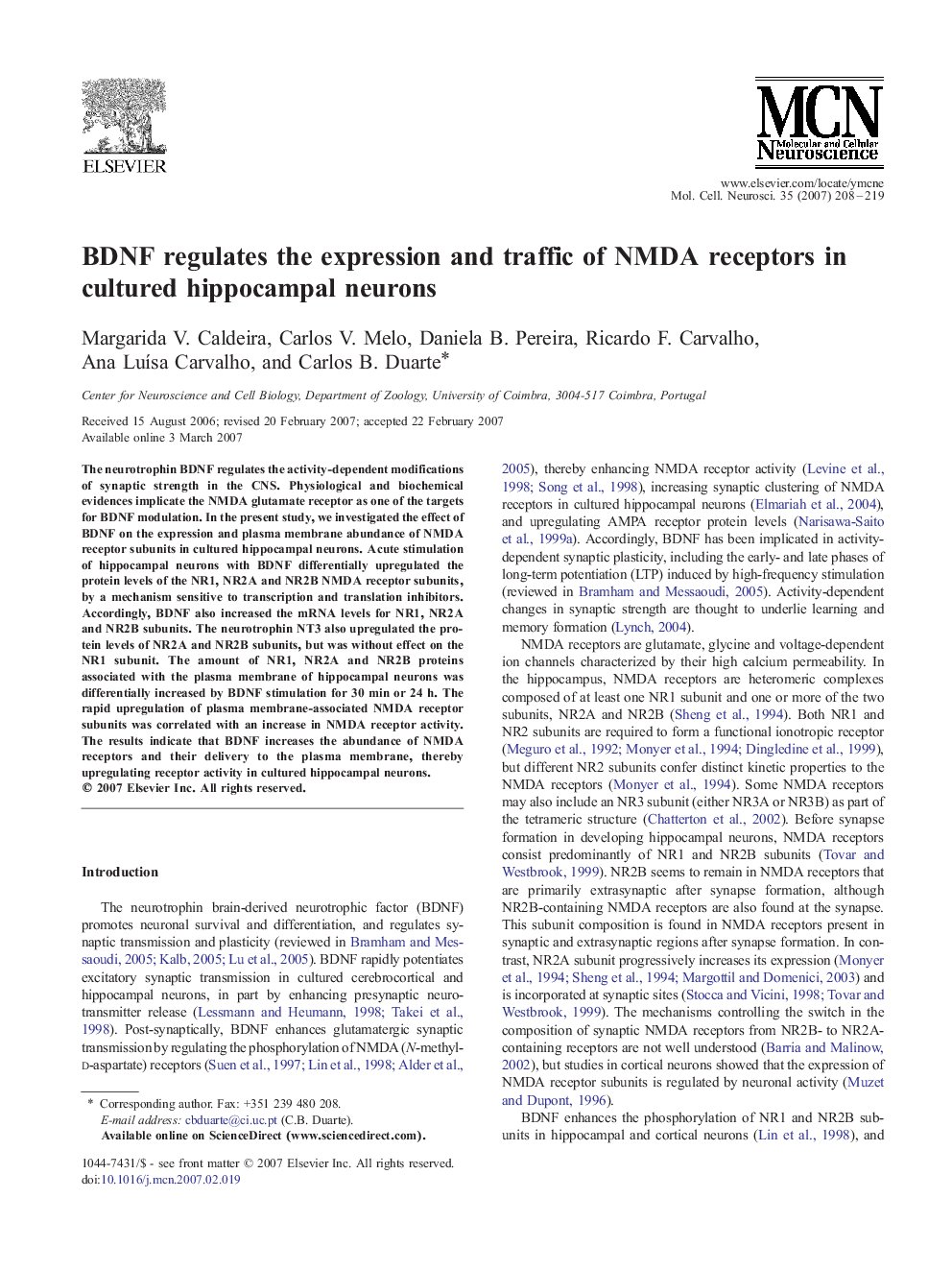| Article ID | Journal | Published Year | Pages | File Type |
|---|---|---|---|---|
| 2199396 | Molecular and Cellular Neuroscience | 2007 | 12 Pages |
The neurotrophin BDNF regulates the activity-dependent modifications of synaptic strength in the CNS. Physiological and biochemical evidences implicate the NMDA glutamate receptor as one of the targets for BDNF modulation. In the present study, we investigated the effect of BDNF on the expression and plasma membrane abundance of NMDA receptor subunits in cultured hippocampal neurons. Acute stimulation of hippocampal neurons with BDNF differentially upregulated the protein levels of the NR1, NR2A and NR2B NMDA receptor subunits, by a mechanism sensitive to transcription and translation inhibitors. Accordingly, BDNF also increased the mRNA levels for NR1, NR2A and NR2B subunits. The neurotrophin NT3 also upregulated the protein levels of NR2A and NR2B subunits, but was without effect on the NR1 subunit. The amount of NR1, NR2A and NR2B proteins associated with the plasma membrane of hippocampal neurons was differentially increased by BDNF stimulation for 30 min or 24 h. The rapid upregulation of plasma membrane-associated NMDA receptor subunits was correlated with an increase in NMDA receptor activity. The results indicate that BDNF increases the abundance of NMDA receptors and their delivery to the plasma membrane, thereby upregulating receptor activity in cultured hippocampal neurons.
